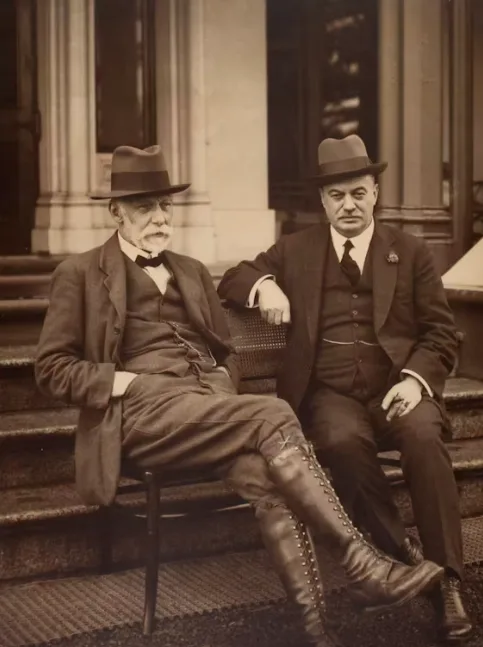I’ve learned that the best Christmas hosts aren’t the ones who do everything perfectly.
They’re the ones who prepare intentionally, set boundaries gracefully, and protect their own peace while creating space for others.
After decades of training individuals in etiquette and emotional intelligence, I’ve observed a pattern. The hosts who genuinely enjoy their own gatherings approach Christmas differently from the start.
They understand that hosting well requires more than menu planning and decoration. It demands emotional preparation, clear communication, and the courage to prioritise what truly matters.
The Reality Behind the Festive Facade
The statistics tell a story most hosts know intimately but rarely discuss.
Holiday stress has jumped to 41% in 2025, with dealing with challenging family dynamics ranking among the top anxiety triggers at 35%. The numbers reveal what many experience but few acknowledge openly.
The burden falls disproportionately on those who host. Research shows that 80.2% of women and 70.5% of men report their sleep quality deteriorates while hosting out-of-town guests. Nearly twice as many mothers as fathers report high stress levels during the holidays.
These aren’t just statistics. They represent real people who’ve lost the joy of hosting because they’ve prioritised everyone else’s comfort above their own wellbeing.
The solution begins weeks before anyone arrives at your door.
Start With Strategic Timing
The timeline matters more than most hosts realise.
Send your invitations two weeks before Christmas. This window provides enough notice for guests to plan while maintaining the event’s significance in their minds.
I recommend finalising your guest list three weeks out. This gives you time to consider dynamics, plan seating thoughtfully, and prepare mentally for the personalities you’ll be hosting.
The earlier you establish these foundations, the more breathing room you create for yourself.
Plan Your Menu With Precision and Flexibility
Great hosts know their limitations and plan accordingly.
Choose dishes you can prepare partially or entirely in advance. Your Christmas morning shouldn’t involve complex recipes you’ve never attempted before.
Account for dietary preferences and restrictions when you send invitations. A simple line asking about allergies or dietary needs prevents last-minute scrambling and shows genuine care.
But here’s what separates good planning from great hosting: build in buffer time.
If you think a dish takes 30 minutes, allocate 45. If you estimate two hours for prep, give yourself three. This cushion protects your composure when inevitable delays occur.
Master the Art of Graceful Boundaries
The most sophisticated hosts understand that boundaries preserve joy rather than diminish it.
Declining last-minute changes or additions requires both clarity and kindness. When someone asks to bring an unexpected guest two days before Christmas, you can say: “I’ve planned carefully for our group size, and I won’t be able to accommodate additional guests this year.”
No apology needed. No lengthy explanation required.
The phrase itself demonstrates respect for both your planning and their request without sacrificing your preparation.
When conversations veer into uncomfortable territory during the gathering, boundary-setting language becomes essential. Phrases like “Let’s agree to disagree” or “I’d rather not get into that right now. Let’s focus on enjoying our time together” redirect without confrontation.
Practice these phrases before the day arrives. The words feel more natural when you’ve rehearsed them privately.
Navigate Complex Family Dynamics With Intention
Extended family gatherings magnify existing tensions.
The key lies in preparation that extends beyond logistics into emotional readiness. Take time one to two weeks before the gathering to identify potential triggers and create a mental gameplan.
This doesn’t mean scripting every interaction. It means acknowledging which topics typically cause friction, which family members clash predictably, and how you’ll respond when tension surfaces.
Consider your seating arrangement with care. Strategic placement can minimise conflict or facilitate connection, depending on your goals and the specific dynamics at play.
Fill your own reserves before the gathering begins. Whether through a quiet morning walk, meditation, or simply time alone with your thoughts, starting from a place of emotional fullness allows you to respond calmly rather than react defensively.
Create Space for Different Generations
Thoughtful hosts consider the full age spectrum of their guests.
If children will attend, designate a space where they can play without disrupting adult conversation. This doesn’t require elaborate entertainment, just intentional space allocation.
For older guests, ensure comfortable seating and easy access to facilities. Small considerations like cushioned chairs and clear pathways communicate respect and care.
The goal isn’t segregation by age but rather creating an environment where everyone can engage comfortably.
Protect Your Own Peace on the Day
Here’s what many hosting guides won’t tell you: the biggest mistake you can make is refusing help.
Recruit volunteers for pre-party preparation, mid-gathering tasks, and post-celebration cleanup. Accepting assistance isn’t a failure of hosting. It’s a demonstration of wisdom.
Schedule intentional breaks for yourself throughout the day. Twenty minutes alone before guests arrive. Ten minutes of quiet in another room during the gathering. These moments aren’t selfish. They’re essential.
Your stress radiates outward and affects the entire atmosphere. Guests sense when you’re overwhelmed, distracted, or depleted.
Welcome each person at the door personally. Make introductions between guests who don’t know each other. These small acts of attention create connection and set the tone for genuine interaction.
But don’t sacrifice your own experience trying to orchestrate every moment. The most memorable gatherings often emerge from organic conversation and connection rather than rigid hosting choreography.
The Foundation of Exceptional Hosting
At The British School of Excellence, we’ve spent decades training individuals in the intersection of etiquette and emotional intelligence.
The principle remains constant: excellence in hosting stems from preparation that honours both your guests and yourself.
This means planning logistics carefully while also preparing emotionally for the complexities that family gatherings inevitably bring. It means setting boundaries that protect your peace while creating genuine space for connection.
Great hosting isn’t about perfection. It’s about intention.
It’s about recognising that your wellbeing directly impacts the atmosphere you create. It’s about understanding that boundaries and warmth coexist beautifully when established with clarity and kindness.
The hosts who truly excel, approach Christmas as an opportunity to practice both generosity and self-preservation. They prepare thoroughly, communicate clearly, and protect their own reserves while opening their homes.
This Christmas, consider what you need to feel genuinely present and peaceful in your own gathering. Then build your planning around that foundation.
The result won’t be perfect. But it will be authentic, sustainable, and far more enjoyable for everyone involved, including you.










